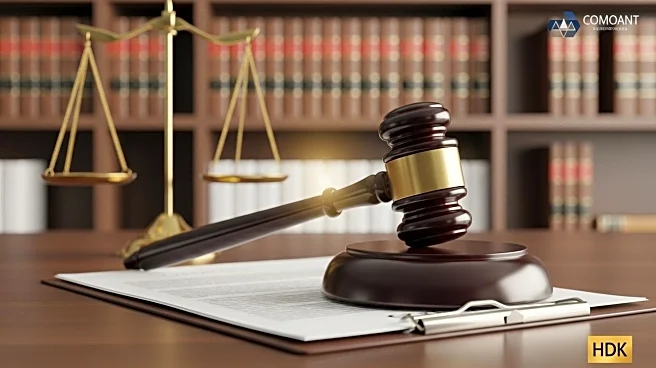What's Happening?
Former Justice Louis Nock, who served on benches in Manhattan and Brooklyn since 2015, has resigned following an investigation by the New York State Commission on Judicial Conduct. Nock was accused of threatening staffers with criminal complaints and practicing law impermissibly while serving as a state supreme court judge. The commission found that Nock often acted in a rude and unprofessional manner towards court staff, leading to multiple complaints. In addition to his resignation, Nock agreed not to seek or accept judicial office in the future. Despite the allegations, Nock has secured a position at Anderson Kill, a corporate law firm, as a shareholder and member of its corporate and commercial litigation group.
Why It's Important?
The resignation of Justice Louis Nock highlights ongoing concerns about judicial conduct and accountability within the legal system. His departure underscores the importance of maintaining professional standards and ethical behavior in judicial roles. The case also raises questions about the oversight mechanisms in place to address misconduct among judges. Nock's transition to a corporate law firm despite the allegations may prompt discussions about the consequences faced by public officials accused of misconduct. This development could influence public trust in the judiciary and the legal profession, as well as impact future policies regarding judicial conduct and accountability.
What's Next?
With Nock's resignation, the New York State Commission on Judicial Conduct may continue to monitor similar cases to ensure judicial accountability. The legal community might see increased scrutiny on judges' behavior and practices, potentially leading to reforms in judicial oversight. Anderson Kill's decision to hire Nock could attract attention and possibly criticism, affecting the firm's reputation. Stakeholders in the legal system, including policymakers and advocacy groups, may push for stricter regulations and transparency in judicial conduct investigations.
Beyond the Headlines
The case of Louis Nock may prompt broader discussions about the ethical responsibilities of judges and the impact of their behavior on the legal system's integrity. It highlights the challenges in balancing professional conduct with personal interests, especially when transitioning from public office to private practice. The situation could lead to debates on the effectiveness of current judicial conduct regulations and the need for more robust mechanisms to prevent and address misconduct.










